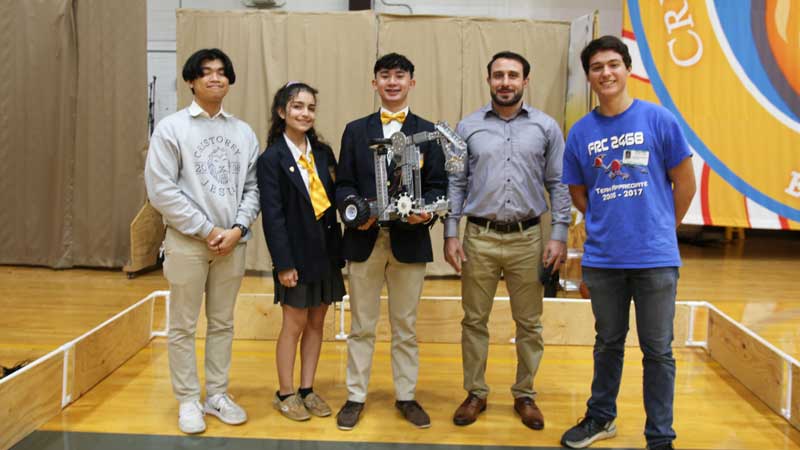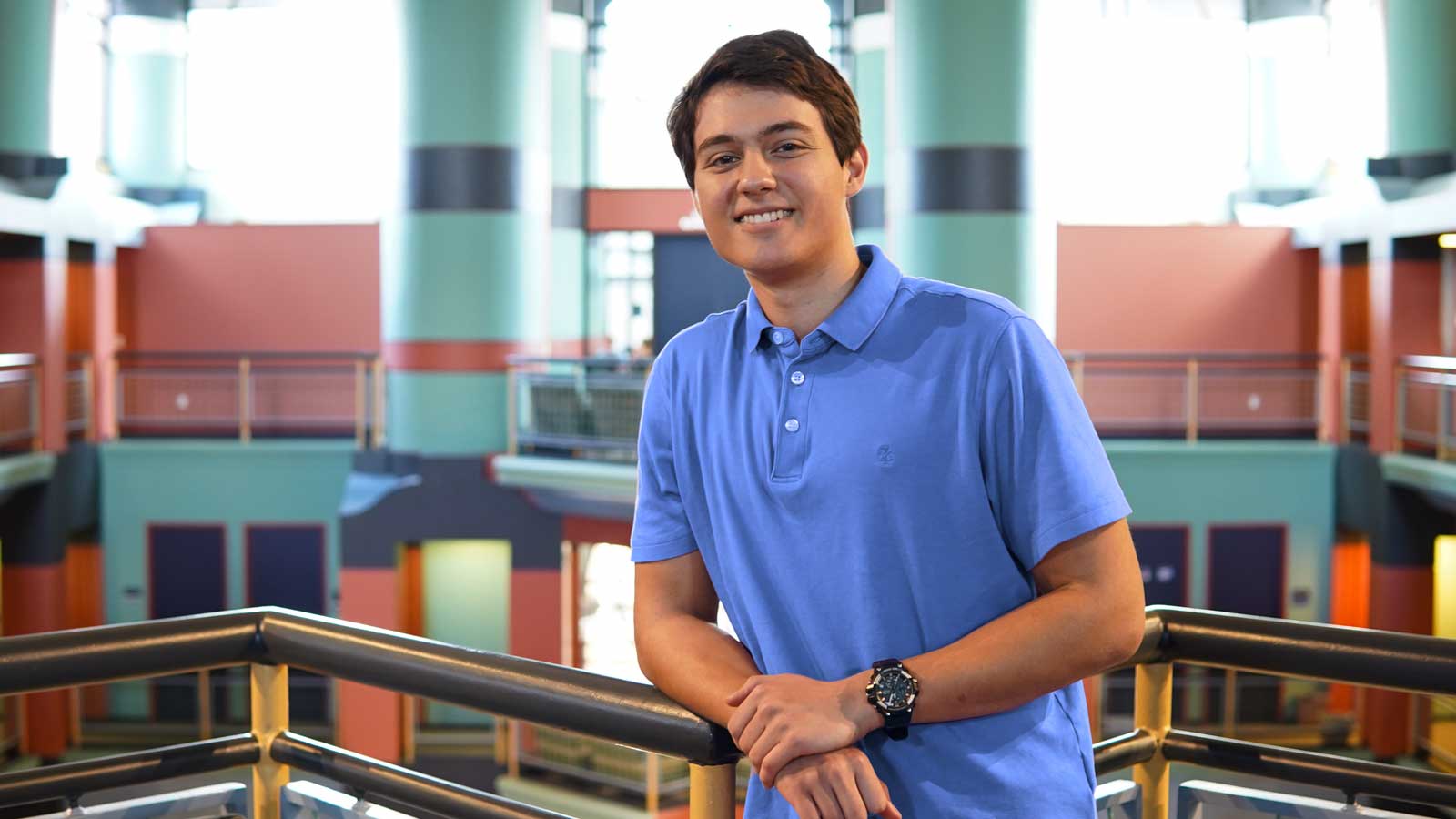Joseph Asfouri was attracted to electrical engineering at Rice University because of the research opportunities.
“I learned about the Rice Neuroengineering Initiative as I was searching for colleges, and was really attracted by how almost all of the engineering professors and electrical engineering professors had some kind of biology component to their work,” said Asfouri, who is a junior. “That distinguished Rice from many other schools.”
Asfouri joined Jacob Robinson's lab when he enrolled. His work focused on the more biological side, characterizing heat-sensitive ion channels for activating human cells with thermal magnetogenetics. He then transitioned into the physics and technical side of the project, working with magnetic nanoparticles.
“I started research in the fall of my first year, right when I got here. Of course, I knew I wanted to do research. I knew that I wanted that to be my career, and I was extremely fortunate to join the Robinson Lab at a time when I can receive mentorship from Dr. Robinson himself.”
The focus of his work with nanoparticles includes identifying under which magnetic field conditions they optimally heat. Last summer he began building an AC magnetometer, a device that measures the magnetization of the nanoparticles in response to an applied magnetic field. The project allowed him to apply what he was learning in the classroom.
“I got to apply almost everything I learned in my analog circuits classes,” he said. “An AC magnetometer consists of a double-sided magnetic coil to generate fields at a range of frequencies and field strengths and a pickup coil to measure the magnetic hysteresis of the nanoparticles.”
Asfouri attributes much of his learning to the mentorship he receives at Robinson Lab. The lab strives to cultivate a culture of support by encouraging scientific collaboration and mentorship from graduate students working in the lab. Asfouri’s mentor was Charles Sebesta, recipient of the Outstanding Mentor Award given at the Undergraduate Research Symposium.
Sebesta is a postdoctoral fellow in the lab of Jacob Robinson, associate professor of electrical and computer engineering (ECE) and of bioengineering (BIOE). Sebesta earned his Ph.D. in BIOE from Rice in 2021.
“Charles has been a close mentor throughout my last five semesters doing research. I nominated him for the mentorship award last semester. That suggests how much he has done for me in terms of being someone I can speak to freely about questions or hypotheses that we have in our experiments,” Asfouri said. “He’s just a really cool person, a great friend to have in the lab”
Although Sebesta and Asfouri have a mentor-to-student relationship, Asfouri proves to be an essential team member in tackling the problems of magnetogenetics.
“He is quick to adapt and try something different when the first approach doesn’t work. He’s eager to learn a new skill and will often search for a solution independently or come up with a few suggestions before asking me for further guidance. This shows an exceptional understanding of the problem and tells me he has thought critically about each possible approach before asking for guidance,” Sebesta said.

In addition to his work in the lab, Asfouri started FIRST at Rice, where he takes on the role of mentor. The chapter invites Rice students who were past participants in FIRST Robotics to serve as mentors for elementary, middle and high school teams. The mentors lead webinars on such subjects as Java and Python programming and pitching to local companies for sponsorships. They help students prepare for competitions and events.
“I’m committed to supporting underserved and underprivileged teams here in Houston,” Asfouri said. “We have a great pool of knowledge among the FIRST Robotics alumni at Rice, and I believe we can help these teams be successful.”
This profile is part of a series about undergraduate student research.

